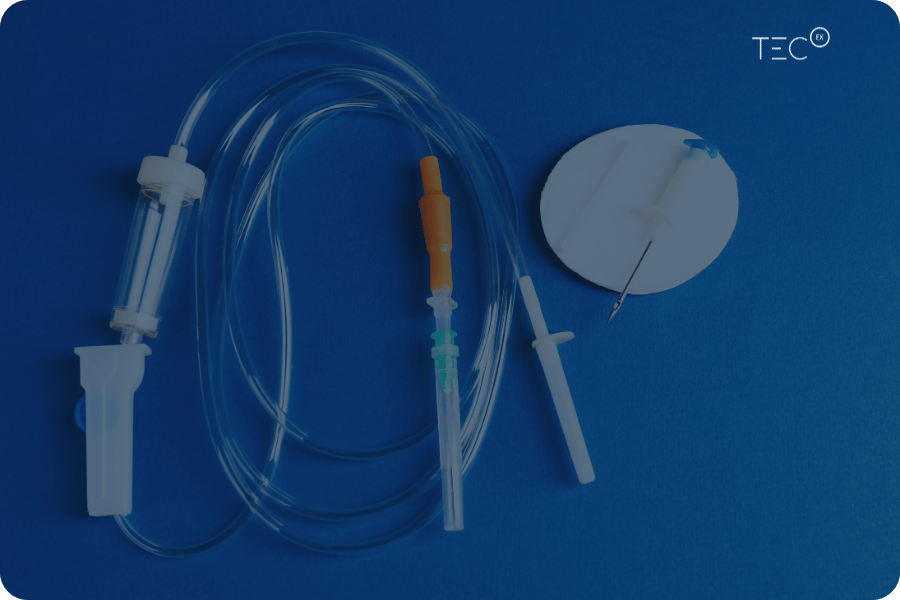Navigating the global trade landscape can be intricate, especially when it comes to understanding the benefits and regulations surrounding international imports. One key element that can significantly impact your business’s import strategy is the Generalized System of Preferences (GSP). But what exactly is the GSP, and how does it affect your tech imports?
Whether you’re a seasoned global trader or new to international importing, grasping the nuances of the GSP can help you optimize your supply chain and reduce costs.
What is the Generalized System of Preferences (GSP)?
The Generalized System of Preferences (GSP) is a trade program that allows developing countries to export their goods to developed countries at reduced tariffs. This program aims to promote economic growth and development in these less-developed countries.
The Different Generalized System of Preferences Programs
Standard GSP
The standard Generalized System of Preferences is designed for low and low/mid-income countries. It includes partial or full removal of customs duties on two-thirds of tariff lines.
Generalized System of Preferences Plus (GSP+)
The Generalized System of Preferences Plus (GSP+) scheme is designed for vulnerable low and low/mid-income countries. It sees tariffs cut to 0% if countries implement international conventions related to good governance and sustainable economic growth. It looks to incentivize improving human rights, labor rights, environmental protection, and more.
EBA (Everything But Arms)
This is a special Generalized System of Preferences scheme offered by the EU to the least developed countries (LDCs), allowing them to export all products except arms and ammunition duty-free to the EU market.
African Growth and Opportunity Act (AGAO)
The African Growth and Opportunity Act is part of the US Generalized System of Preferences and is open to eligible sub-Saharan African countries. It offers duty-free access to the US for 1800 products, on top of the 5000 GSP products.

You can see which countries benefit from the Generalized System of Preferences in the UNCTAD List of Beneficiaries document.
It details which countries receive GSP benefits from each donor country, and at which level the benefits are received.

Reduced Tariffs
For high-value tech goods shipped from developing countries to GSP beneficiary countries, the tariffs are significantly lower. This can make these products more competitive in the global market, encouraging exports and increasing revenue for the developing countries.

Market Access
The Generalized System of Preferences program provides developing countries with greater access to the markets of developed nations. This can be especially beneficial for high-value goods, which often require large-scale production and distribution networks to reach global markets.

Economic Growth
By promoting exports of high-value tech goods, GSP can contribute to the economic growth and development of developing countries. This can lead to job creation, improved living standards, and increased investment in technology and innovation.

Diversification
GSP can encourage developing countries to diversify their exports, reducing their reliance on traditional commodities and increasing their economic resilience.

Technology Transfer
In some cases, GSP can facilitate the transfer of technology and knowledge from developed countries to developing countries. This can help to improve the quality and competitiveness of dual-use goods produced in developing nations.
GSP-Eligible Tech Products
Each country with a GSP scheme will publish a list of eligible articles for duty-free import, which may vary from country to country. In the US, for example, there are around 3500 articles suitable for duty-free treatment from GSP beneficiaries, and a further 1500 articles are eligible for Least Developed Beneficiary Developing Countries (LDBCs).
While the exact list of eligible products can vary depending on the specific Generalized System of Preferences program and country, here are some common tech products that often qualify for preferential treatment:
Electronics and Components
- Electronic components: Integrated circuits, semiconductors, printed circuit boards
- Consumer electronics: Cameras, gaming consoles, GPS devices, wearables

Information Technology (IT) Products
- Software: Operating systems, applications, databases
- Data center equipment: Cooling systems, power supplies
- IT services: Software development, system integration, cloud computing

Telecommunications Equipment
- Mobile communication equipment: Base stations, antennas, repeaters
- Fixed-line communication equipment: Switches, routers, modems
- Optical fiber equipment: Cables, connectors, lasers

Medical Devices
- Diagnostic equipment: X-ray machines, ultrasound scanners, MRI machines
- Therapeutic equipment: Dialysis machines, ventilators, pacemakers
- Medical consumables: Test kits, syringes, catheters

It’s important to note that the Generalized System of Preferences is not a one-size-fits-all solution. For the most accurate and up-to-date information, it is recommended to consult with the relevant trade authorities or trade experts in your country. They can provide specific details on the Generalized System of Preferences program, eligibility criteria, and applicable tariff rates for tech products.
Who Runs GSP?
The Generalized System of Preferences is administered by the World Trade Organization (WTO). While the WTO sets the overall framework and rules for the Generalized System of Preferences, individual countries or regions often have their own specific GSP programs with variations in eligibility criteria, tariff rates, and other details.
These programs are typically managed by government agencies or trade ministries within the participating countries.
Countries Offering Generalized System of Preference Programs
The GSP program is implemented by various developed countries, each with its own specific rules and eligibility criteria. Some of the major destinations that offer benefits include:
Benefits and Challenges of the Generalized System of Preferences
Benefits
- Increased Export Opportunities: GSP allows developing countries to increase their exports to developed markets, which can boost their economies.
- Job Creation: Increased exports can lead to job creation in developing countries.
- Economic Development: The program can contribute to the economic development of developing countries by promoting industrialization and diversification.
- Improved Living Standards: Increased economic growth can lead to improved living standards for people in developing countries.
Challenges
- Limited Impact: Some argue that the program has had a limited impact on the economic development of developing countries.
- Ineligibility Issues: Some developing countries may not be eligible for GSP benefits due to their economic size or failure to meet other criteria.
- Administrative Burdens: Compliance with GSP rules can be burdensome for developing countries.
- Competition Concerns: Some developed countries have expressed concerns about competition from GSP beneficiaries.
How Often Are GSP Eligible Country and Product Lists Reviewed?
The GSP eligible country and product lists are reviewed annually. This review process allows for adjustments based on economic changes, trade relationships, and the development needs of participating countries. These updates are critical for businesses to stay informed about which products can benefit from duty-free entry.
How We Can Help with GSP Compliance
The specific benefits and requirements of the program can vary depending on the country and product involved. It’s essential for businesses involved in international shipping of high-value tech goods to understand the Generalized System of Preferences rules and regulations that apply to their specific situation. TecEx specializes in global import compliance and can assist with:
Understanding GSP Eligibility
We provide detailed guidance on which products and countries are covered under the Generalized System of Preferences.
Trade Compliance
Ensure your imports and exports meet all regulatory requirements.
Streamlined Processes
Our expertise helps optimize your import processes and reduce compliance risks.
Partner with us to simplify your international trade operations and maximize the benefits of the Generalized System of Preferences.
What does GSP stand for in trade?
GSP stands for Generalized System of Preferences, a program that allows duty-free imports from eligible countries.
How do I know which countries are GSP-eligible?
You can see which countries benefit from the Generalized System of Preferences in the UNCTAD List of Beneficiaries document. It details which countries receive GSP benefits from each donor country, and at which level the benefits are received.
How do I know if my products are GSP-eligible?
Each country with a GSP scheme will publish a list of eligible articles for duty-free import, which may vary from country to country.
Contact a TecEx Compliance Specialist for further assistance.
What benefits does the GSP offer?
The GSP provides duty-free access to certain products, helping to lower costs and increase market competitiveness.





















